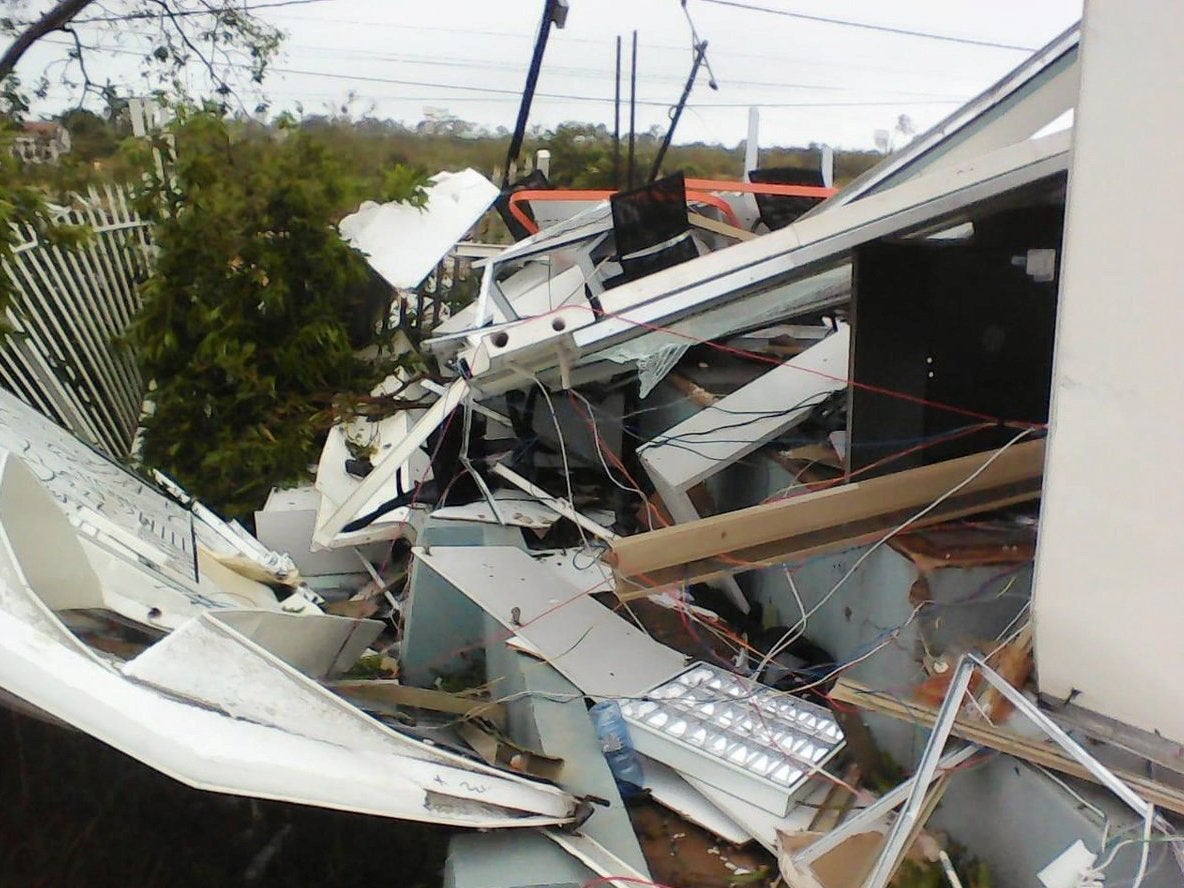Cyclone Kenneth turns deadly as 140mph winds batter Mozambique weeks after storm killed hundreds
Woman killed by falling tree while ‘high number’ of houses destroyed

At least one person has died after a cyclone bringing 140mph winds hit northern Mozambique just weeks after another storm killed hundreds.
Cyclone Kenneth made landfall on Thursday night, tearing into a part of Mozambique that has not seen such a severe storm in at least 60 years.
A woman in the city of Pemba was killed by a falling tree, while a “high number” of houses in Macomia district in Cabo Delgado were destroyed, the local emergency operations centre said.
Warning of “massive flooding” on Friday, the United Nations (UN) said it was the first time in known history that the southern African nation had been hit by two cyclones in one season.
UN humanitarian chief Mark Lowcock said Cyclone Kenneth “may require a major new humanitarian operation” in one of the world’s poorest nations, even as post-Cyclone Idai relief operations are expected to continue for month.
“The families whose lives have been turned upside down by these climate-related disasters urgently need the generosity of the international community to survive over the coming months,” he said.
Cyclone Kenneth packed the power of a Category 4 hurricane as it approached Mozambique, with winds of up to 136 mph.
The government, which said it evacuated about 30,000 people ahead of the storm, and aid groups hurried to assess the damage on Friday.

The cyclone is expected to bring twice as much rain over the next 10 days as Cyclone Idai did last month, according to World Food Programme spokesman Herve Verhoosel.
While this region is less sparsely populated than the one hit before, Mozambique’s disaster management agency said nearly 700,000 people could be at risk from the new cyclone.
Power lines were reported down in some communities of northern Mozambique, and Pemba city had significant power outages.
Katie Wilkes, spokeswoman for the International Federation of Red Cross and Red Crescent Societies, said: “It’s been a challenge for us even to have clear lines of communication.”
She added that the location of the second cyclone was “a very vulnerable area, higher in poverty” than the one hit by Cyclone Idai last month.
The storm had earlier hit the Indian Ocean island nation of Comoros.
About 1,000 homes were reportedly flooded and crops were destroyed, according to Ms Wilkes.
AP contributed to this report
Join our commenting forum
Join thought-provoking conversations, follow other Independent readers and see their replies
Comments
Bookmark popover
Removed from bookmarks